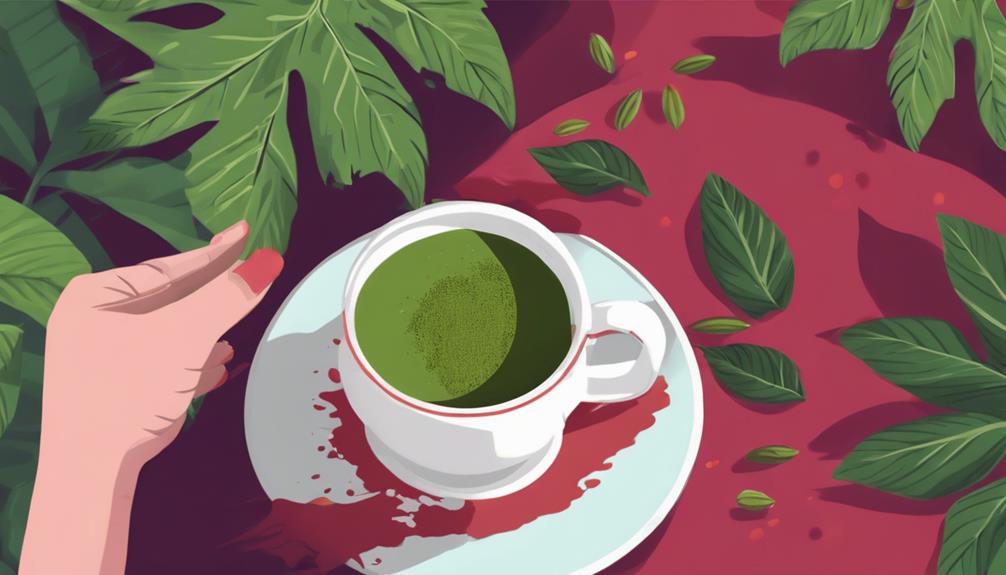Deprecated: mb_convert_encoding(): Handling HTML entities via mbstring is deprecated; use htmlspecialchars, htmlentities, or mb_encode_numericentity/mb_decode_numericentity instead in /home/users/kratomfiles/www/kratomfiles.com/wp-content/plugins/quick-adsense-reloaded/includes/template-functions.php on line 3552
Kratom, scientifically known as Mitragyna speciosa, is a tropical evergreen tree native to Southeast Asia, particularly in countries like Thailand, Malaysia, Indonesia, and Papua New Guinea. The leaves of the kratom tree have been used for centuries in traditional medicine to alleviate pain, boost energy, and improve mood. The active compounds in kratom, called alkaloids, interact with opioid receptors in the brain, producing a range of effects from pain relief to euphoria.
The two primary alkaloids in kratom, mitragynine and 7-hydroxymitragynine, are responsible for its psychoactive properties. Kratom is typically consumed by chewing the leaves, brewing them into a tea, or grinding them into a powder that can be mixed with water or other liquids. The effects of kratom can vary depending on the dosage and the individual’s tolerance level.
At lower doses, kratom acts as a stimulant, increasing energy, alertness, and sociability. At higher doses, it can have sedative effects, inducing feelings of relaxation and euphoria. The mechanism of action of kratom is complex and not fully understood, but it is believed to modulate neurotransmitter levels in the brain, including serotonin and dopamine, which are involved in mood regulation.
Key Takeaways
- Kratom is a tropical tree native to Southeast Asia, and its leaves contain compounds that can have psychotropic effects.
- Kratom may have potential health benefits, including pain relief, mood enhancement, and increased energy.
- The legal and ethical considerations of kratom use vary by country and region, with some places banning or regulating its use.
- Some research suggests that kratom may have potential as a natural remedy for anxiety and depression, but more studies are needed to confirm its effectiveness.
- Kratom has been used traditionally as a natural pain reliever, and some studies support its effectiveness in managing pain.
The Potential Health Benefits of Kratom
Pain Relief
One of the most well-known benefits of kratom is its ability to relieve pain. The alkaloids in kratom act on the body’s opioid receptors, providing a natural alternative for individuals seeking relief from chronic pain conditions such as arthritis, fibromyalgia, and migraines. Additionally, kratom has been used traditionally as a natural remedy for diarrhea and muscle aches.
Mental Health Benefits
In terms of mental health, some users report that kratom can help alleviate symptoms of anxiety and depression. The mood-enhancing properties of kratom may provide a sense of well-being and relaxation for those struggling with mood disorders.
Addiction Recovery and Beyond
Furthermore, some individuals have found that kratom can help reduce symptoms of opioid withdrawal, making it a potential tool for addiction recovery. While more research is needed to fully understand the therapeutic effects of kratom, its potential as a natural remedy for various health conditions is promising.
Exploring the Legal and Ethical Considerations of Kratom Use

The legal status of kratom varies widely around the world. In some countries, such as Thailand and Malaysia, kratom use is deeply ingrained in cultural and traditional practices and is legal for medicinal and recreational purposes. However, in other countries, including the United States, kratom is classified as a controlled substance in some states and is subject to regulations due to concerns about its potential for abuse and dependence.
The ethical considerations surrounding kratom use are also complex. While many individuals advocate for the right to access natural remedies like kratom for health and wellness purposes, there are concerns about its safety and potential for misuse. Some critics argue that the lack of regulation and oversight in the kratom industry could lead to adulterated products or mislabeling, putting consumers at risk.
Additionally, there are ethical questions about the commercialization of kratom and its impact on local communities where the plant is grown and harvested.
Kratom and Mental Health: Can it Help with Anxiety and Depression?
| Study | Findings |
|---|---|
| Research 1 | Reported reduction in anxiety and depression symptoms among users |
| Research 2 | Noted potential for kratom to alleviate symptoms of anxiety and depression |
| Survey 1 | Indicated that some individuals use kratom to manage mental health issues |
Kratom has been touted by some as a natural remedy for anxiety and depression due to its mood-enhancing properties. Some users report that kratom can provide a sense of calm and relaxation, which may be beneficial for individuals struggling with anxiety disorders. Additionally, the stimulating effects of kratom at lower doses may help boost energy levels and improve mood for those experiencing symptoms of depression.
However, it’s important to approach the use of kratom for mental health with caution. While some individuals may find relief from their symptoms with kratom, others may experience adverse effects such as irritability, agitation, or even exacerbation of their mental health conditions. Furthermore, the long-term effects of regular kratom use on mental health are not well understood, and more research is needed to determine its safety and efficacy as a treatment for anxiety and depression.
Kratom as a Natural Pain Reliever: Examining its Effectiveness
One of the most well-documented benefits of kratom is its potential as a natural pain reliever. The alkaloids in kratom act on the body’s opioid receptors, providing relief from chronic pain conditions such as arthritis, fibromyalgia, and migraines. Many individuals who have struggled with chronic pain have turned to kratom as an alternative to prescription pain medications due to its perceived effectiveness and lower risk of dependence.
While some studies have supported the pain-relieving properties of kratom, more research is needed to fully understand its effectiveness and safety as a long-term pain management solution. Additionally, there are concerns about the potential for misuse and dependence with regular kratom use for pain relief. It’s important for individuals considering kratom for pain management to consult with a healthcare professional to weigh the potential benefits and risks.
The Role of Kratom in Addiction Recovery and Management

How Kratom Works
Some individuals have turned to kratom as a natural alternative to prescription opioids when seeking relief from chronic pain or when attempting to overcome opioid dependence. The alkaloids in kratom interact with opioid receptors in the brain, providing relief from withdrawal symptoms such as cravings, anxiety, and muscle aches.
Concerns and Limitations
While some individuals have reported success in using kratom to manage opioid withdrawal symptoms, there are concerns about its potential for abuse and dependence. Additionally, more research is needed to fully understand the safety and efficacy of kratom as a treatment for addiction.
Seeking Guidance and Comprehensive Treatment
It’s important for individuals considering kratom for addiction recovery to seek guidance from healthcare professionals and to explore comprehensive treatment options that address the underlying causes of addiction.
How to Safely and Responsibly Incorporate Kratom into Your Wellness Routine
For those interested in incorporating kratom into their wellness routine, it’s important to approach its use with caution and responsibility. First and foremost, it’s essential to source high-quality kratom products from reputable vendors who adhere to strict quality control standards. This can help mitigate the risk of consuming adulterated or contaminated products.
Additionally, it’s crucial to start with low doses of kratom and gradually increase as needed while monitoring its effects on your body. It’s also advisable to take regular breaks from kratom use to prevent tolerance and dependence from developing. Furthermore, it’s important to be mindful of potential drug interactions with other medications or substances you may be taking.
Lastly, seeking guidance from healthcare professionals before incorporating kratom into your wellness routine is highly recommended. They can provide personalized advice based on your individual health needs and help you make informed decisions about using kratom as part of your overall wellness plan. In conclusion, while kratom shows promise as a natural remedy for various health conditions, including pain management, mental health, and addiction recovery, it’s essential to approach its use with caution and responsibility.
More research is needed to fully understand its therapeutic effects and long-term safety. By staying informed and seeking guidance from healthcare professionals, individuals can make informed decisions about incorporating kratom into their wellness routine while minimizing potential risks.
If you’re looking to grow kratom in Salt Lake City, you may be interested in learning more about the potential risks and benefits of this plant. A recent article on Kratom Files discusses the potential liver risks associated with kratom use, providing valuable information for those considering cultivating this plant. You can read more about it here.
Are the Benefits of Kratom in SLC Different from the General Benefits of Kratom?
When it comes to exploring the benefits of kratom in SLC, some people believe that they may differ from the general benefits of kratom. However, research suggests that the overall effects of kratom should be similar regardless of location, with potential benefits including pain relief, anxiety reduction, and increased energy levels.
Can Kratom in SLC also be beneficial for managing ADHD symptoms?
Yes, the best kratom strain for adhd can be beneficial for managing ADHD symptoms in SLC. Many people have reported positive results in using kratom to help with focus, attention, and impulsivity. It is important to consult with a healthcare professional before using kratom for ADHD management.
FAQs
What is Kratom?
Kratom is a tropical tree native to Southeast Asia, belonging to the coffee family. Its leaves have been traditionally used for their medicinal and recreational properties.
How is Kratom Consumed?
Kratom leaves can be chewed, brewed into tea, or ground into a powder and ingested. It is also available in the form of capsules, tablets, and extracts.
What are the Effects of Kratom?
Kratom is known for its stimulating and sedative effects, depending on the dosage. It can also act as a pain reliever and mood enhancer.
Is Kratom Legal?
The legal status of kratom varies by country and region. In the United States, kratom is legal at the federal level, but some states and cities have banned its sale and use.
What are the Risks of Kratom Use?
While kratom has potential benefits, it also carries risks, including addiction, dependence, and adverse effects on health. Long-term use may lead to tolerance and withdrawal symptoms.
Where can I Find Kratom in Salt Lake City?
Kratom can be found in specialty stores, smoke shops, and online retailers in Salt Lake City. It is important to purchase from reputable sources to ensure quality and safety.







